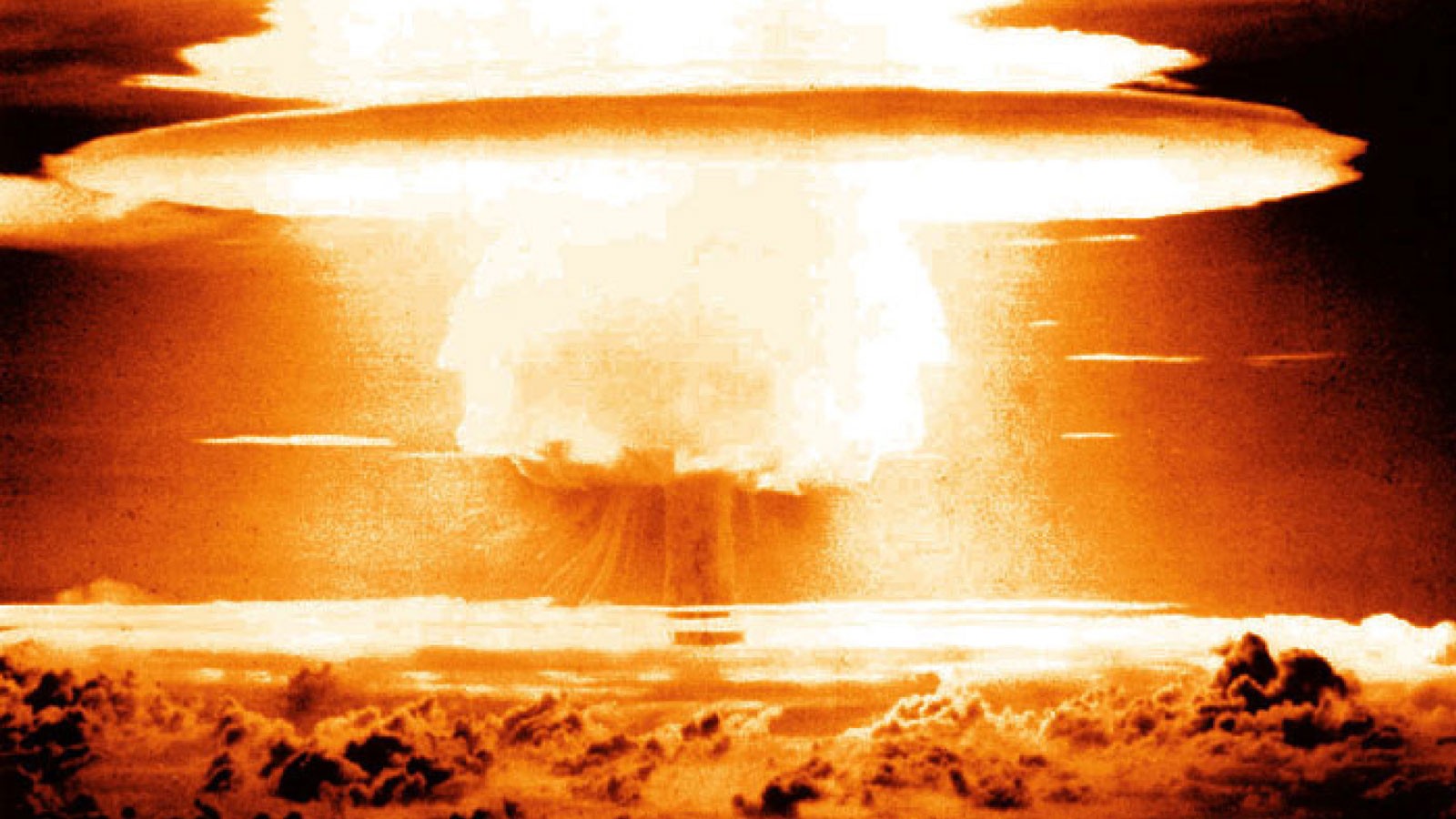Aggies Invited to Oct. 19 Screening of H-Bomb Documentary, Oct. 20 Virtual Talk on 'Oppenheimer'
USU Department of Physics hosts public events during the 2023 Four Corners Section American Physical Society Meeting.
By Mary-Ann Muffoletto |
An image captured during the United States' first hydrogen bomb test in 1952 at Enewetak Atoll in the Pacific’s Marshall Islands. The USU Department of Physics will host an Oct. 19 documentary screening and Oct. 20 virtual talk addressing decisions about weapons of mass destruction. (Photo Credit: Public domain.)
The decision to use military force, along with the type of military force, is an ethical quandary as old as time. War in Ukraine, Gaza and other areas of the globe remind us of this recurring conundrum, along with the pivotal 20th century decision to construct a hydrogen bomb, depicted in the recent blockbuster “Oppenheimer.”
The Utah State University community is invited to explore these issues in depth with the independent documentary “Ultimate Weapon: The H-Bomb Dilemma” at 6 p.m. Thursday, Oct. 19, in Room FAV 262, of the Fine Arts Visual Building on USU’s Logan campus. The free public screening is offered by USU Department of Physics, as part of the department’s hosting of the 2023 Four Corners Section of the American Physical Society Oct. 20-21 in Logan.
In addition, Aggies are invited to view the conference keynote address, “Oppenheimer And The Bombs,” by the documentary’s author, Peter Galison, Pellegrino University Professor of the History of Science and of Physics at Harvard University, broadcast live via Zoom at 6:15 p.m. Friday, Oct. 20.
Ultimate Weapon debuted on The History Channel in August 2000. Galison’s 45-minute film explores secret deliberations among government officials and scientific advisers, dating from the late 1940s to the early 1950s, as they weighed the decision to build the H-bomb. The documentary features declassified information, including documents, images and film footage about Manhattan Project scientists J. Robert Oppenheimer, Edward Teller and Hans Bethe, from the Los Alamos National Laboratory archives and other sources. It also features interviews with Teller and Bethe, who passed away in 2003 and 2005, respectively.
Galison says the documentary illuminates science’s relevance to the lives of all human beings.
“Our aim with this film was to provide unbiased information to allow viewers to form their own opinion about the making of the hydrogen bomb,” he says. “You can’t understand physics in isolation. It’s connected with our philosophy, with our ways of making war and with our intellectual history.”
Oscar Varela, associate professor in USU’s Department of Physics and an APS Four Corners Meeting organizer, says the film and keynote address provide Aggie scholars with a unique opportunity to explore how science influences lives.
“We all face important decisions and challenging choices as we consider the implications of new technologies,” Varela says.
USU President Elizabeth Cantwell will provide introductory remarks to Galison’s Oct. 20 address.
To access a link to Galison’s talk on Zoom and for more information, visit the APS Four Corners Meeting website.
WRITER
Mary-Ann Muffoletto
Public Relations Specialist
College of Science
435-797-3517
maryann.muffoletto@usu.edu
CONTACT
Oscar Varela
Associate Professor
Department of Physics
617-230-5609
oscar.varela@usu.edu
TOPICS
Society 504stories STEM 163stories World 121stories Physics 99stories Politics 72storiesComments and questions regarding this article may be directed to the contact person listed on this page.







